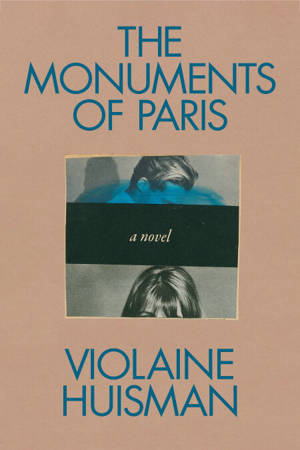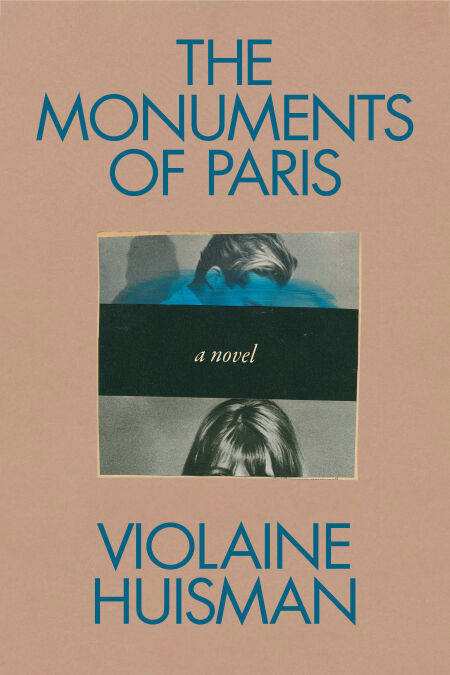
- Afhalen na 1 uur in een winkel met voorraad
- Gratis thuislevering in België vanaf € 30
- Ruim aanbod met 7 miljoen producten
- Afhalen na 1 uur in een winkel met voorraad
- Gratis thuislevering in België vanaf € 30
- Ruim aanbod met 7 miljoen producten
Zoeken
Omschrijving
A remarkable novel drawn from life about a Frenchwoman’s efforts to come to terms with the legacy of her father and grandfather, powerful forces who left a mark on their country’s culture but whose incorrigible womanizing also left a complex mark on their wives and children
Violaine Huisman grew up in Paris with her beautiful, bipolar mother —the subject of Huisman’s acclaimed debut novel The Book of Mother —and her iconoclastic, flamboyant father, whose self-dramatization made him a formidable raconteur and a questionable parent. The one constant in her father’s personal narrative was his obsession with his childhood during the Vichy regime in France and of his father Georges, long dead, a Belgian Jew whose heroic and tragic biography had taken on the trappings of family myth. In The Monuments of Paris, Huisman transforms these complex layers of history into a moving fiction about exile and belonging, about the lies families are built on and the truths they hold dear.
As the novel opens, “Violaine” returns to Paris from her adopted home of New York City to visit her dying father for the last time. And as he once again tells the story of his father’s rise and fall during the Second World War, Violaine becomes herself obsessed with this myth of her grandfather Georges—and with the nearly erased story of the most significant of his many mistresses, a beautiful and aristocratic woman named Choute, who bears a strange resemblance to her own mother. With the help of a local historian, she sets out to hunt down the truth as it might be known, and in so doing creates the necessary and deeply compelling fiction that is this singular book.
In prose as elegant as it is precise, The Monuments of Paris draws a haunting portrait of twentieth-century France through the outsized ambitions, infidelities, and tragedies of the author’s own family, both real and imagined.
Violaine Huisman grew up in Paris with her beautiful, bipolar mother —the subject of Huisman’s acclaimed debut novel The Book of Mother —and her iconoclastic, flamboyant father, whose self-dramatization made him a formidable raconteur and a questionable parent. The one constant in her father’s personal narrative was his obsession with his childhood during the Vichy regime in France and of his father Georges, long dead, a Belgian Jew whose heroic and tragic biography had taken on the trappings of family myth. In The Monuments of Paris, Huisman transforms these complex layers of history into a moving fiction about exile and belonging, about the lies families are built on and the truths they hold dear.
As the novel opens, “Violaine” returns to Paris from her adopted home of New York City to visit her dying father for the last time. And as he once again tells the story of his father’s rise and fall during the Second World War, Violaine becomes herself obsessed with this myth of her grandfather Georges—and with the nearly erased story of the most significant of his many mistresses, a beautiful and aristocratic woman named Choute, who bears a strange resemblance to her own mother. With the help of a local historian, she sets out to hunt down the truth as it might be known, and in so doing creates the necessary and deeply compelling fiction that is this singular book.
In prose as elegant as it is precise, The Monuments of Paris draws a haunting portrait of twentieth-century France through the outsized ambitions, infidelities, and tragedies of the author’s own family, both real and imagined.
Specificaties
Betrokkenen
- Auteur(s):
- Uitgeverij:
Inhoud
- Aantal bladzijden:
- 240
- Taal:
- Engels
Eigenschappen
- Productcode (EAN):
- 9780593833773
- Verschijningsdatum:
- 13/04/2026
- Uitvoering:
- E-book
- Beveiligd met:
- Adobe DRM
- Formaat:
- ePub

Alleen bij Standaard Boekhandel
+ 17 punten op je klantenkaart van Standaard Boekhandel
Beoordelingen
We publiceren alleen reviews die voldoen aan de voorwaarden voor reviews. Bekijk onze voorwaarden voor reviews.








